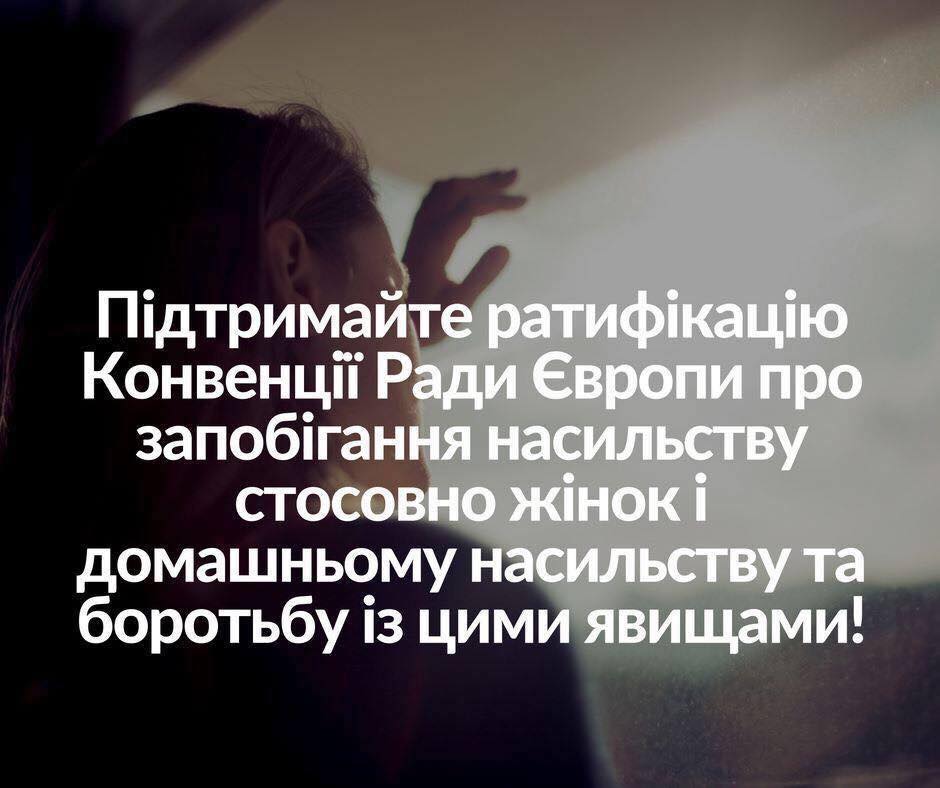Council of Churches on the Istanbul Convention: promotes same-sex relationships in schools
Representatives of the All-Ukrainian Council of Churches and Religious Organizations believe that the ratification of the Istanbul Convention carries serious risks for Ukrainian society and family, since along with counteraction to domestic violence, a problematic definition of “gender” concept is introduced.
 As reported by heads of churches and representatives of confessions during a meeting with people’s deputies of Ukraine, on March 3.
As reported by heads of churches and representatives of confessions during a meeting with people’s deputies of Ukraine, on March 3.
Members of the Council of Churches are unanimous in that the Ukrainian government must take effective measures to counter domestic violence. However, this should not be at the expense of the moral foundations of Ukrainian society, nor it should distort children’s and young people’s understanding of a full-fledged conceived by God as a union of man and woman, which corresponds to human nature.
Remarks of religious figures to the Istanbul Convention are that this document for the first time at the international level distorts the understanding of the concept of “gender”. Now “gender is suggested to be understood as “socially fixed roles, behavior, activities and characteristics that a particular society considers inherent in women and men, but not as gender itself – female and male”.
Their fears are reinforced by the fact that the Convention guarantees protection from discrimination based on “gender identity” and “sexual orientation”, which makes the definition of a “gender” dependent not on natural gender characteristics, but on self-identification of the individual. As a result, the current definitions of a “gender”, “gender equality”, “gender policy”, “gender-legal expertise” in the Ukrainian legislation, due to the interpretation of the Istanbul Convention, can be interpreted not in the sense of equality of women and men, but in the interests of persons, who identify themselves as women or men.
According to the Council of Churches, such distorted approach can make the Istanbul Convention an instrument for promoting new “gender roles” and same-sex relations in Ukrainian schools and universities, which would be a ruinous way for Ukraine. This concern is due to the fact that the Convention directly involves obligations of the signatory States to teach pupils about “non-stereotyped gender roles”.
In addition, the implementation of the Convention is monitored by the International Group of Experts on Action against Violence against Women and Domestic Violence (GREVIO). Given that in many EU countries gender equality programs allegedly come down to the promotion of same-sex relations, so religious figure are concerned about the possible additional pressure on Ukraine from this structure.
“We strongly oppose the idea that the homosexual lifestyle and behavior are treated as natural, normal and useful for society and individuals. We are against the idea that homosexuality is promoted as a variant of the norm of sexual life and that the State encourages its citizens to same-sex relations”, – stated in the Declaration of the All-Ukrainian Council of Churches and Religious Organizations, which was adopted in May 2007.
In these circumstances, Council of Judges deems it inappropriate to ratify the Istanbul Convention (bill №0119), since the current wording of the Convention does not provide for the possibility of warning about certain of its provisions regarding the concept of a “gender” and derived therefrom, which in itself carries unacceptable threats to the institution of the family and matrimony in Ukraine.
Religious figures urge the Verkhovna Rada to effectively counter domestic violence, to support the adoption of bills №4952 and №5294 in their current finalized forms, including the removal of terms “sexual orientation”, “gender identity”, “gender sensitivity”, and other derivatives from the “gender” concept.
In turn, several deputies from the Equal Opportunities Caucus and gender activists are concerned about the extent to which the church interferes in State affairs, although the Constitution of Ukraine stipulates that the church is separated from the State.
In particular, on March 3, Kateryna Levchenko, the director of La Strada Ukraine, at a meeting of the public council of the Equal Opportunities Caucus noted that “the church becomes a part of government processes”.
“Church interferes in State affairs. Let’s call things by their proper names”, – said Levchenko. She also added that despite the fact that there are powerful expert environment in Ukraine that supports the ratification of the Istanbul Convention and publicly speaks about it, there are parallel “other government processes”.
“There is not a word about same-sex education in the Convention. This is clear manipulation from the Council of Churches. At the meeting of the public council of the Equal Opportunities Caucus experts have noted that the State should remove benefits for religious institutions, perhaps then they will take care of their own affairs and will not interfere with State’s affairs”, – as commented by Iryna Vyrtosu, the Chief Editor of the Human Rights Information Centre web-site and coordinator of the #ConventionAsPresent campaign.
As a reminder, from February 6 to 14, Human Rights Information Centre and Amnesty International Ukraine have conducted a campaign titled #ConventionAsPresent on the issue of counteraction domestic violence in Ukraine.
Human rights defenders urge the deputies to ratify the Istanbul Convention, because it is necessary to:
- isolate the offender from the victim and guarantee safety of the victim;
- ensure law enforcement bodies’ respect towards injured person at the time he reports injuries;
- ensure proper investigation based on testimony of the victims and a fair trial in the court;
- create national telephone trust line;
- guarantee comprehensive assistance to the victim and effective punishment of the offender.
Ukraine as a part of the European Council took part in the development of the text of the Istanbul Convention. Ukraine is a co-author of this international document. In order to ratify the Convention, the national legislation must be harmonized.














